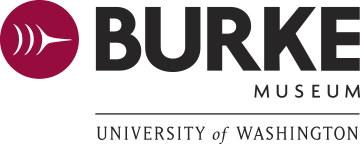Meruliaceae
14 genera
33 species
33 species
Show only taxa with photos
Order by:
Scientific name
Common name
Display as:



Index to genera:
Abortiporus, Bjerkandera, Crustoderma, Fibricium, Gloeoporus, Hyphoderma, Hypochnicium, Irpex, Junghuhnia, Mycoacia, Phlebia, Pirex, Steccherinum, StereopsisAbortiporus biennis – blushing rosette
Description: Abortiporus biennis sometimes forms single or rosette-like clusters of caps, often on a stem, but just as frequently forms distorted fruitbodies with pores on the upper surface. When caps are present, they are flat to funnel-shaped, and pale pinkish to reddish brown, with a paler, feathery or wavy margin. The pores are pinkish white to pink-buff, as is the stem.
Habitat: Woodlands
Substrate: stumps or on ground, often in grass
Description: Abortiporus biennis sometimes forms single or rosette-like clusters of caps, often on a stem, but just as frequently forms distorted fruitbodies with pores on the upper surface. When caps are present, they are flat to funnel-shaped, and pale pinkish to reddish brown, with a paler, feathery or wavy margin. The pores are pinkish white to pink-buff, as is the stem.
Habitat: Woodlands
Substrate: stumps or on ground, often in grass
Bjerkandera adusta – smoky bracket, smoky polypore
Description: Bjerkandera adusta forms flat or shelf-like, often overlapping, tough fruitbodies with smoke gray tubes and small, angular dark smoky gray or blackish pores. The surface of the caps is tomentose to somewhat hairy, cream to butterscotch in color, and not distinctly zoned. It is rather frequent on decaying hardwood logs and woody materials, rarely on conifers.
Habitat: Woodland
Substrate: stumps, logs, and dead trees
Description: Bjerkandera adusta forms flat or shelf-like, often overlapping, tough fruitbodies with smoke gray tubes and small, angular dark smoky gray or blackish pores. The surface of the caps is tomentose to somewhat hairy, cream to butterscotch in color, and not distinctly zoned. It is rather frequent on decaying hardwood logs and woody materials, rarely on conifers.
Habitat: Woodland
Substrate: stumps, logs, and dead trees
Bjerkandera fumosa – big smoky bracket
Description: Bjerkandera fumosa can be most easily identified in how it differes from B. adusta. B. fumosa has thicker flesh and buff to pale smoky gray spores and a dark like above the base of the tubes (cut through fruitbody).
Substrate: decaying hardwood logs and woody materials
Description: Bjerkandera fumosa can be most easily identified in how it differes from B. adusta. B. fumosa has thicker flesh and buff to pale smoky gray spores and a dark like above the base of the tubes (cut through fruitbody).
Substrate: decaying hardwood logs and woody materials
Phlebia radiata – wrinkled crust, radiating Phlebia
Phlebia tremellosa – trembling Merulius, jelly rot, gelatinous woodcrust
Habitat: mainly a fall fungus and occurs on stumps, logs, and woody debris of both hardwoods and conifers
Habitat: mainly a fall fungus and occurs on stumps, logs, and woody debris of both hardwoods and conifers
Steccherinum ochraceum – ochre spreading tooth
Stereopsis humphreyi
Distribution: As far as we are aware, S. humphreyi has been reported only from the west side of the Olympic Peninsula in Washington and the Queen Charlotte Islands in B.C. It probably also occurs in southeast Alaska and coastal Oregon and northern California; whether it occurs farther inland is less certain.
Distribution: As far as we are aware, S. humphreyi has been reported only from the west side of the Olympic Peninsula in Washington and the Queen Charlotte Islands in B.C. It probably also occurs in southeast Alaska and coastal Oregon and northern California; whether it occurs farther inland is less certain.

